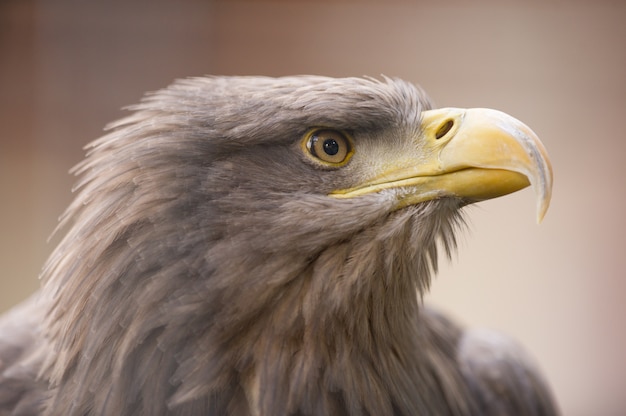Bald Eagle – Fascinating Facts and Trivia

The bald eagle’s scientific name is Haliaeetus leucocephalus.
It is not actually bald, but its white head feathers give it the appearance of being bald.
Bald eagles can live up to 30 years in the wild.
Their wingspan can reach up to 7 feet (2.1 meters).
Bald eagles are excellent swimmers and can swim short distances.
They have an incredible eyesight which allows them to spot prey from miles away.
Their beak is powerful and can exert up to a ton of pressure per square inch.
Bald eagles are monogamous and mate for life.
These eagles build the largest tree nests of any bird species.
The bald eagle is the national bird and symbol of the United States.
They were on the brink of extinction, but thanks to conservation efforts, their population has significantly increased.
Bald eagles can reach speeds of up to 40 miles per hour (64 kilometers per hour) while flying.
They primarily feed on fish, but also eat small mammals, birds, and carrion.
Bald eagles undergo a molting process every year, where they shed old feathers and grow new ones.
The largest population of bald eagles in the world is found in Alaska.
They have a unique ability to lock their talons together during courtship displays.
Bald eagles can see ultraviolet light, which helps them spot prey in the water.
They are skilled hunters and can catch fish using their talons in mid-flight.
Bald eagles are known for their distinctive and recognizable screech.
Bald Eagle – Fascinating Facts and Trivia part 2
Their nests, called eyries, can weigh up to two tons.
The bald eagle appears on the back of the one-dollar bill in the United States.
They are strong and agile fliers, capable of soaring at great heights for long distances.
Bald eagles have a lifespan of around 20-25 years in the wild.
They migrate during the winter to find food in open waters or to more temperate climates.
Bald eagles communicate through vocalizations, body postures, and flight displays.
They have a unique feather arrangement on their toes to better grip slippery fish.
Bald eagles have a specialized gland in their eye that enables them to clean and protect their eyes.
They have excellent hearing, which helps them locate prey hidden under the water’s surface.
The bald eagle was removed from the list of endangered and threatened species in 2007.
They are powerful symbols in Native American cultures and frequently depicted in their artwork.
Bald eagles incubate their eggs for approximately 35 days.
They have a sharp beak that allows them to tear through meat and break open fish.
Bald eagles exhibit strong territorial behavior and defend their nests vigorously.
They have a wingspan-to-body weight ratio that aids in their agility and soaring abilities.
Bald eagles are often seen soaring in thermals, which are columns of warm rising air.
They have an average diving speed of around 30 miles per hour (48 kilometers per hour).
Bald eagles form communal roosts during the winter months, where hundreds of individuals gather together.
They have a highly developed sense of smell, helping them locate dead or dying animals for feeding.
Bald eagles often use the same nest year after year, adding to it each time to make it larger.
They have specific flight patterns during courtship displays, including aerial acrobatics and talon-locking.
Bald eagles play a crucial role in controlling fish populations by preying on weaker individuals.
They are highly adaptable birds and can be found in a variety of habitats, from coastal areas to mountain forests.
Bald eagles have been observed stealing food from other birds, such as ospreys and cormorants.
They have a lifespan of over 40 years in captivity.
Bald eagles are a symbol of freedom, strength, and resilience.

